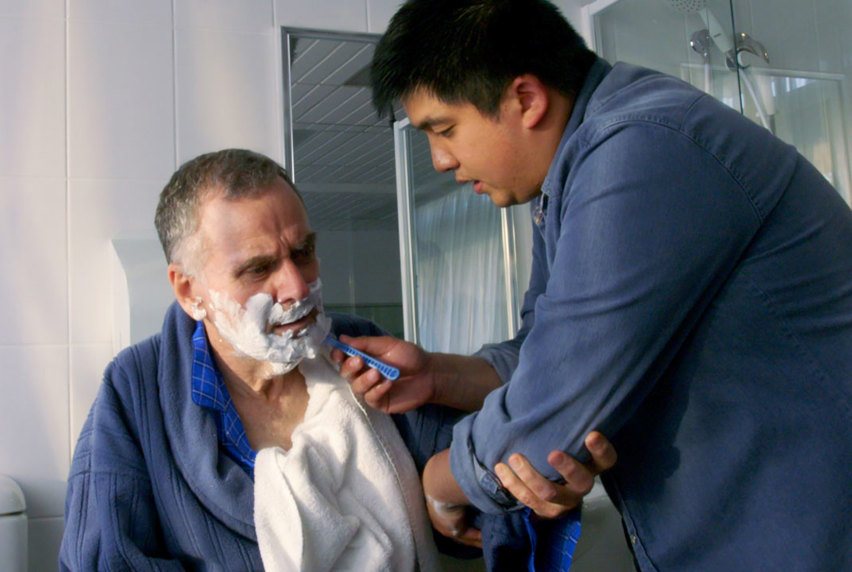Responding to Australia’s Ageing Population

By the year 2057, it is projected there will be 8.8 million* older people in Australia, a huge trajectory from today's aged population of 3.8 million. Job and career opportunities in the sector will exponentially increase. So how can you get workforce ready?
The increase and longevity of our population means that jobs and careers in the health sector are set to sky rocket and qualified care professionals are in high demand. Over the next decade, For Melbourne, the northern corridor** expansion will build community-based infrastructure including aged care facilities to accommodate the expanding and ageing population.
The demand for jobs already exists and will only grow. Changes to the way aged care is to be delivered going forward means all personal care workers will be required to have a minimum qualification of Certificate III as a baseline sector entry requirement.
In-home care
Whilst immediate perceptions may turn to residential care facilities for the aged, it is predicted that there will be more people turning to an integrative health care approach. Care workers will need to provide a level of support that mirrors that of an aged care facility delivered in a home setting.
Recent changes to the way aged care is delivered are also being implemented into Melbourne Polytechnics aged care and individual support training packages. Melbourne Polytechnic trainer and assessor Jacinta McMennemin says “we’re creating a team environment in the classroom that reflects what students will experience in industry. We use a holistic approach with scenarios in our training model to ensure students are equipped for their working life in any situation including that of a home-based scenario’”.
Training facilities that reflect industry
In 2017, Melbourne Polytechnic’s Greensborough campus was transformed into a health and community services training hub, complete with industry-reflective simulation suites. Together with minimum 120 hours of supervised industry placement, students also have the benefit of receiving their in-class training in this simulated workplace setting. When graduates enter the workforce, they are very familiar with the machinations of their future work. Teachers providing training are all working in the sector and are able to provide current workplace knowledge and practices to students. Jacinta says “As a trainer and assessor, it's important to work within the sector on a monthly basis to ensure the training I provide is current and I can provide guidance and advice on up-to-date mandatory reporting and care planning”.
Infection Control in response to our new way of living
Whilst no one could have predicted the outcome of 2020 and the way our world has changed, Melbourne Polytechnic has quickly adapted our health and community training packages to respond to aged care sector requirements. After consultation with industry, and is in response to the identified need for infection control training for workers in the Aged Care and Disability Support sectors as a response to the COVID-19 pandemic, an ‘infection control’ study unit has been embedded into the aged care and individual support program, students now graduate with a thorough understanding of how to incorporate and maintain high levels of sanitisation and infection control in every workplace setting.
Our job at Melbourne Polytechnic is to ensure that students heading into the aged care environment as care workers are armed with tangible experience and knowledge. Graduates will be able to provide care and support for our ageing community immediately and be able to adapt to changes both in the work setting and for the direct needs of their care recipients.
If you have a strong sense of empathy, care deeply about helping vulnerable people and have a professional attitude to work, contact us about starting your career in Aged Care and Individual Support here.
*Australian Bureau of Statistics (ABS) 2014. Australian historical population statistics, 2014. ABS cat. no. 3105.0.65.001. Canberra: ABS